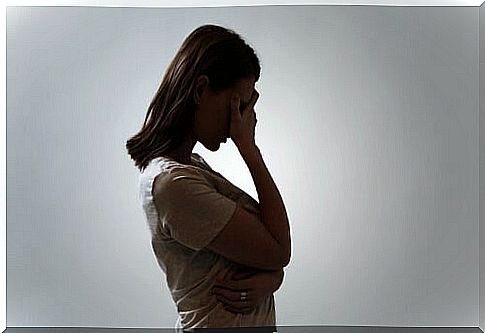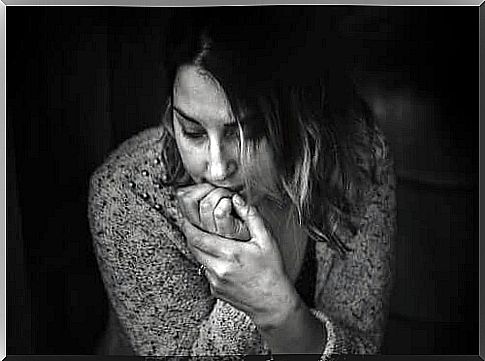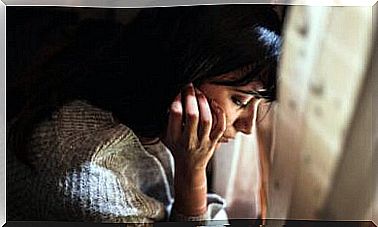I Have Depression, Now What?

With Spain being the fourth country with the most cases of depression in Europe according to the WHO, it is not surprising that we all know a person with depression. In this sense, when a person begins to feel bad, not only are the symptoms of the condition in question relevant – in this case the depressive symptoms – but also the discomfort that knowledge of the diagnosis can cause.
On the other hand, whether a diagnosis has been received or not, people who begin to have depressive symptoms may be frightened by their behaviors, cognitions, and reactions. In this article we present tips that can help us begin our battle with depression and emerge victorious.

Depression is neither a disease nor incurable
The most important thing to cope with a depressive disorder is to know that we need the person to want to get out of it. Your discipline is going to have to be greater than taking one medicine or another and waiting.
Psychotropic drugs, in certain cases, can be very useful if combined with psychological therapy, but that is the key. Therapy, if we decide to go to it, can be the most powerful tool we have to begin to feel better and move away from despair, sadness or apathy. Therefore, therapy is also a hopeful message for those with depression, since it works.
From different psychological currents, options are proposed that have been scientifically validated, experimentally tested and that are postulated as effective in treating depression. From the behavioral activation proposed by the acceptance and commitment therapy or the rational emotional therapy of Ellis of the cognitive-behavioral there are tools that are useful.
For this reason, although we do not feel it as such, it is important to know that you can get out of the depressive loop and that you do not have to do it alone: the psychologist knows the tools and it will be a job for both.
The desire is created, they do not appear alone
One of the most notable symptoms of depression is dropping out of intrinsically motivated activities. Activities that used to be liked are put aside without being replaced, so that the person gradually loses those sources of positive emotions.
The absence of motivation or desire is an important factor: it anesthetizes the initiative and tests the will. The person with depression feels weak and therefore tries to economize as much as possible. However, this being an inheritance of the thinking model in which we have been educated, the truth is that the desire can be generated. That these do not exist, does not mean that what we do should not be done.
If a person has lost the desire to walk with his dog every morning, it is important to bear in mind that certain activities can continue to be done “without desire”, precisely to generate “desire”. Surely, after that walk we will feel better; a state of mind that we will drag into the next activity, which will cost us less.
Our mind does not always protect our interests
People with depression may notice how their thoughts have changed. These can be harsher, more hopeless, or sadder. They can flood our dialogue with phrases that do us a lot of harm.
Without a treatment – for example, a cognitive restructuring work – it is difficult to realize that these thoughts are there, but above all to disarticulate them and make them invalid. Since that would be something to address in therapy — something that is strongly recommended to start — the person with depression is not expected to know how to do it alone. In fact, it doesn’t have to.
Until that work is done, it is very important to keep them at bay. We must not believe everything that our head says, even if it seems to be right. Thoughts like “nobody cares about me”, “I’m worthless”, “I can’t go on” are irrational thoughts that only undermine our self-concept.
As many times we cannot avoid them, it is vitally important to have strategies that allow us to ignore them. In this sense, activity-guided distraction strategies work very well.
Helping without knowing how to help
One of the most important factors in treating depression is having a dense and valuable social circle of support. The downside is that it is depression itself that tends to erode this circle of support, so that in many people we see how, as they sink deeper and deeper into depression, it shrinks in area.
On many occasions, people try to help. They try and see no reflection in the other, so they end up giving up. They no longer enjoy their company, they feel powerless because they do not know how to help, so they end up withdrawing.
That is why it is so important that if we are part of this circle of a person with depression, we stay in our place. The intervention, like the evaluation, must be led by a professional.

Psychological therapy as the initial and main option
Sometimes it’s lazy. Sometimes it’s scary. Sometimes the desire is lacking or one does not “believe in psychology . ” In one way or another, depression forms a general and persistent state of mind that you can get out of.
Although there are times when there is a spontaneous remission, the truth is that there are people who can live with depression for many years. Others, their whole life. This does not mean that this depression cannot be addressed, but that perhaps it has never been confronted with a directed, adapted and specialized intervention.
Although they are very different examples, we cannot hope to cure a leukemia without going to the doctor; We can wait to go to the dermatologist if the spot on our skin grows, but in this case the time we let run will play against us. The same goes for psychological disorders.
Therefore, even if we think that we are not bad enough to go to therapy, that it is not worth it or that it will not help at all, it is better to be safe than sorry, and work on it in time so that depression does not become a ball of snow.
If personal resources allow it, therapy can be the first step to overcome depression and start a well-guided job by people who have been trained to help in these cases. It is about directing those forces that depression has not yet taken to places that give us back control and a sense of well-being.









